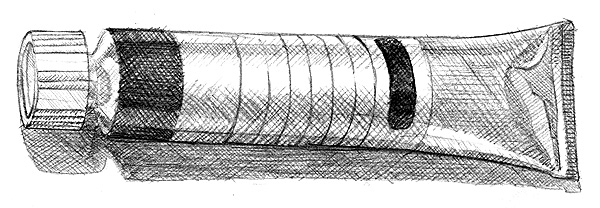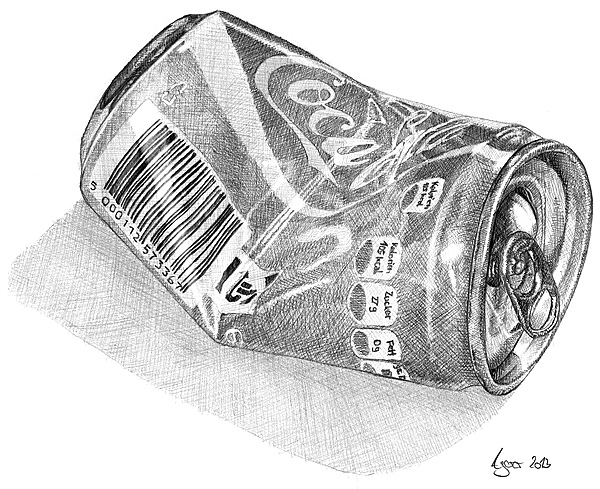A drawer is always faced with the challenge of how metal effects can be represented effectively. For creating chrome, mirror or metal effects, there are typical methods with which the desired impression can be obtained. The optics of matt or strong luster, of light and dark reflections can be painted by selective use of light and dark tonal values. This drawing tutorial will teach you the most important basics for drawing chrome and metal effects.
Colors of metal such as silver and gold, chrome or bronze have a specific effect, which is related to the particular shine. In addition, the different metals have different color nuances. The desired optical impression can not be achieved with some special silver, gold or bronze colored pencils. Even if these pens have their own glitter effect, they are no effective help when you try to draw metal effects seriously. If you want to depict metal colors realistically, you need special methods for drawing and painting. Special pens are not needed - the normal colors are sufficient.
.jpg)
The surfaces of metallic objects have a typical color which depends on the material. In addition, they have the special feature that they produce more or less glossy reflections. The color of metal is yellow in gold, white in silver and orange-brown in bronze. If you want to achieve a real silver, gold or chrome effect, you have to practice the art of illustrating reflections through drawing light-dark on the right spot.
For a simple drawing exercise for metal effects we choose a pot as the first subject. With this relatively simple example, we can learn to achieve metal effects when drawing and painting. Below is the photo of a pot. The first step is to look at the drawing object very carefully. The most important thing are the areas of light and shadow. The variations of reflections are particularly important.
.jpg)
The most important areas of the pot are marked in the following photo to help you experience the subject of the drawing.
It can clearly be seen that all reflections and the light reflections on the surface of the pot are vertical. The thick white line can be clearly seen - also with a vertical course. The white color comes due to the direct reflection of the incident light. The shadows at the edges of the pot are clearly visible. The environment of the pot is also reflected in the shining metal.
.png)
The thick white line that appears on the top surface is very important for a drawing where we want to depict the reflections of metal. The overall effect of an picture is strongly influenced by how such a reflection succeeds. A pen with a silver color does not have an usefull effect.
Metal effects are characterized by the material’s property, that light is strongly reflected. Where the light is reflected exactly in the direction of the observer, the surface appears extremely white. In this case that the artist has to do "nothing" in principle when presenting metal and reflection effects. The region in which the reflecting emerges remains white and unaffected. In a painting, the area of the reflection would then be marked with a white color. Whoever has understood this principle of "omission" and whoever begins to implement it will increasingly find fun in representing metal in its various reflections.
.jpg)
It is interesting and makes a picture appear three-dimensional when dark shadows and reflections are illustrated. This is clearly visible in our drawing: The dark reflection in the center of the pot enhances the metallic shining effect and describes the shape of the body.
In the following pictures you can see some more examples for the illustration of metal effects.
.jpg)

.jpg)
.jpg)

This website is about how to draw and paint. You will learn to use pencil and brush and how to drawn and paint your own pictures.